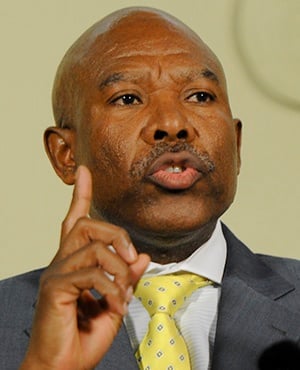Riyaz Patel
An EFF motion seeking to nationalise the South African Reserve Bank (SARB) has been revived and referred back to lawmakers, parliamentary papers showed Tuesday, Reuters reports.
The reintroduction of the bill comes at an awkward time for President Cyril Ramaphosa who is on an investment drive to boost an ailing economy, while juggling his pro-business approach with left-leaning elements of the ruling African National Congress (ANC).
The South African Reserve Bank Amendment Bill was introduced by Julius Malema in August last year, but lapsed when a new Parliament was elected in May.
The move rattled markets wary of threats to the central bank’s independence.
The ANC resolved at its conference in December 2017 to move the SARB into full state ownership, but underlined that any plans to nationalise the bank will be done responsibly and would not affect the institution’s mandate or independence.
“Our position on the nationalisation of the reserve bank has not changed. If you talk about sovereignty of that bank, belonging to the people, is one and the same thing,” ANC Secretary-General Ace Magashule told a media briefing following the party’s NEC meeting in July.
ANC Deputy Secretary General Jessie Duarte added that the mandate of the South African Reserve Bank would not change if the bank was nationalised.

SARB governor Lesetja Kganyago has previously warned that the ownership debate was increasing investor uncertainty and pushing up the risk premium attached to the country’s debt.
Hi deputy, Kuben Naidoo, said “An independent central bank acts as an important check on government-controlled fiscal policy.”
Unlike most central banks in the world, the South African Reserve Bank (SARB) is privately owned.
Prof Jannie Rossouw, head of the school of economic and business sciences at Wits University, wrote in August 2018 that a change of ownership would not necessarily be a bad thing.
“A large number of central banks have been nationalised since 1945,” he said. “So the world trend is in favour of nationalisation with shareholding becoming a rare exception.”
There is a misperception that ownership would give the government control over the bank’s monetary policy.
“The shareholding structure and whether we nationalise or not will have no impact whatsoever on the constitutional mandate of the bank,” Rossouw said.
Who owns the Reserve Bank?
The SARB is ‘owned’ by about 750 private shareholders who together hold 2 million shares. Most shareholders are individuals but some shares belong to companies, trusts, provident funds and unions.
Multinational mining giant Anglo American and financial services group Discovery own 10,000 shares each. The National Library of South Africa owns 200 and the Nelson Mandela Children’s Fund owns 100.
The bank’s latest Shareholder Index report shows that about 11% of its 2 million shares are foreign-owned.
SARB Shareholder Index Report as at 31 October 2019
During a parliamentary question and answer session in March, President Cyril Ramaphosa expressed concern about the bank’s “external shareholders who live in various countries in the world.”


